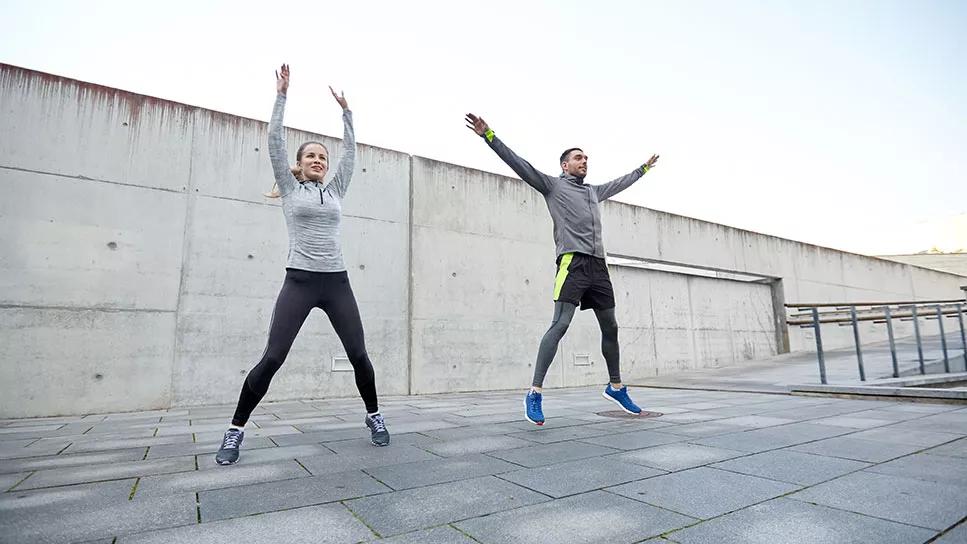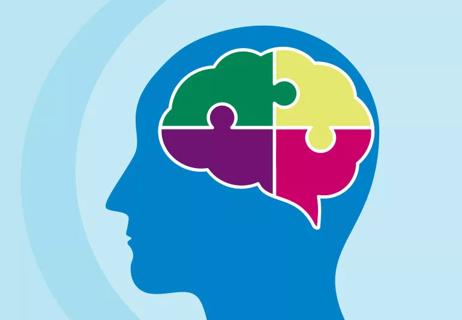Advertisement
Cardio is great for improving cognition, but strength and balance training are just as important

Forgetting information. Losing focus. Having difficulty doing tasks you used to find easy, like following a recipe or running errands. Struggling to remember the word for that thing…
Advertisement
Cleveland Clinic is a non-profit academic medical center. Advertising on our site helps support our mission. We do not endorse non-Cleveland Clinic products or services. Policy
These are all symptoms of mild cognitive impairment (MCI), which is exactly what it sounds like. A person with MCI is experiencing a slight decline in their mental abilities.
MCI can happen to anyone at any age. And it can be the result of a wide range of medical issues, including mood disorders like depression and anxiety, alcohol and substance use disorders, sleep disorders, nutritional deficiencies — even urinary tract infections!
That said, MCI is particularly common in people over 55. By age 65, approximately 15% to 20% of the U.S. population shows signs of MCI, according to the Alzheimer’s Association. These individuals are at greater risk of developing dementia, but some people don’t progress beyond a mild state of forgetfulness, according to memory and brain health specialist Babak Tousi, MD.
If you believe you’re experiencing MCI, a healthcare provider is going to encourage you to do a lot of things, like adjusting your eating habits, being social and exercising your brain by reading, completing puzzles and learning new skills. Pretty standard stuff.
But there’s one proposed treatment that may surprise you. They might encourage you to take more walks or sign up for an exercise class. That’s because researchers have found that keeping your body healthy through exercise can help keep your mind sharp, too.
But how? And what kinds of exercise are best? Dr. Tousi explains.
An article on exercise and memory suggests that the brain boost you get from exercise involves “several direct and indirect mechanisms at molecular and supramolecular levels.” While many questions remain about the relationship between exercise and cognitive strengthening, there’s evidence to suggest the following:
In 2018, the American Academy of Neurology (AAN) released new guidelines designed to help providers treat people with MCI. Those guidelines suggest patients exercise at least twice a week. It’s a low-risk way to improve not just your memory, but also your overall health, according to the AAN.
Advertisement
The AAN guidelines are a bit vague — “at least twice a week” leaves a lot of room for interpretation. But as a general rule, most providers recommend 150 minutes of moderate-intensity aerobic activity a week, along with two strength training sessions. Dr. Tousi concurs.
“You can do 30 minutes a day for five days or combine the activities into two sessions over the weekend,” he says, adding: “It’s important to start slowly and gradually increase the duration and intensity of your activity to avoid injuries.”
The conventional wisdom used to be that aerobic exercise — also known as “cardio” — was your best bet for brain health. But in 2022, the EXERT trial, which describes itself as “the longest ever Phase III study of exercise on brain function in adults with MCI,” changed the conversation.
The EXERT trial found that, while cardio may have more benefits in the short term, strength and balance training are just as beneficial for brain health in the long run. Combining all three forms of physical activity has always been important for whole-body health, especially as we get older and lose things like bone density, muscle tone and flexibility. Now, we know that your brain also benefits from a diverse range of exercises.
“Choose whatever aerobic or resistance activity you enjoy,” Dr. Tousi recommends. “The most important thing is that you’re getting up and moving on a regular basis.”
Not sure of the difference between cardio, strength and balance training? Here’s a quick explainer:
Here are a few examples of each kind of exercise to get you started:
Cardiovascular exercise
Strength training
Balance and flexibility training
As you can probably guess, there’s plenty of overlap between these three categories. Dancing requires strength, endurance and flexibility, for example. And that’s a good thing! Who doesn’t love a bonus?
But don’t grab your ballet slippers just yet. Dr. Tousi is quick to remind us that — before you jump into a new fitness routine — you should always speak with your healthcare providers.
“Your physician can review your health history and help you decide what kind of exercise — and how much — is appropriate for you,” he says.
Once you have the all-clear, it’s time to get up and get moving. An active lifestyle won’t just help you preserve your memories — it’ll make some fun new ones, too!
Advertisement
Learn more about our editorial process.
Advertisement

Stretch before and after your workouts for maximum benefits, but your pre-workout stretches should be different from your post-workout stretches

This low-impact, full-body workout builds strength and stamina while reducing stress

Our collective misremembering of events comes from a surplus of false memories

Exercising can actually improve arthritis symptoms — and low-impact exercises are best

Bulgarian split squats, hack squats and goblet squats are just a few of the moves you can try

While walking, be mindful of your body, your mind, your place in the world and all five of your senses as you pave a path forward, one step at a time

Squat smart with proper technique, including a neutral spine, wide knees and an engaged core

This important step gives your body time to return to its resting state while reducing muscle cramps, dizziness and injury

Focus on your body’s metabolic set point by eating healthy foods, making exercise a part of your routine and reducing stress

PFAS chemicals may make life easier — but they aren’t always so easy on the human body

While there’s little risk in trying this hair care treatment, there isn’t much science to back up the claims